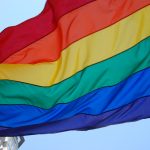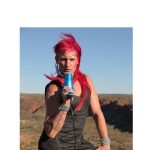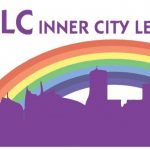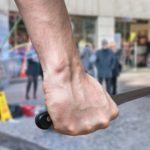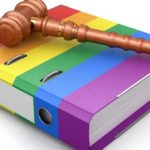Stop Trying to Make Gay People ‘Straight’: An Interview with Brave Network’s Nathan Despott
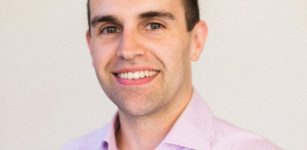
The Victorian government has set up a new health complaints watchdog. The Health Complaints Commissioner has the power to place temporary or permanent bans on unethical health providers, and this will include practitioners of gay conversion therapy.
The legislation that gives the commissioner power- the Victorian Health Complaints Act 2016 – came into effect on February 1 this year. When the bill was introduced before parliament, Victorian Health Minister Jill Hennessy said the government had zero tolerance for those trying to “convert” LGBTIQ community members.
A medieval practice
Gay conversion therapy is a series of practices carried out by mainly religious groups that have the aim of turning LGBTIQ individuals heterosexual. This so-called therapy has long-term highly detrimental effects on those who undergo it, as it basically constitutes mental abuse.
The largest two ministries that were practising gay conversion therapy in Australia – Exodus International and Living Waters – have been shut down. But these practices still continue in the community in more informal ways, such as small church group and pastoral care settings.
Moves against gay conversion therapy
Several jurisdictions around the world have condemned these practices as fraudulent, and have banned the therapy for people under the age of 18. These jurisdictions include the US states of California and New Jersey, as well as the nation of Malta.
Victoria is the only jurisdiction in the world that now has legislation that can prevent this therapy being carried out on people over the age of 18.
Human Rights Law Centre Director of Advocacy, Anna Brown, launched a research project in January last year, aimed at better understanding and tackling the harm caused by gay conversion therapy in Australia.
The Preventing Harm, Promoting Justice: Legal Responses to ‘Gay Conversion’ Therapy project is delving into these largely unregulated practices, as the prevalence and nature of them remain unclear.
The ex-gay movement
Behind this destructive therapy is the ex-gay movement. The movement holds as its core belief that same-sex attraction and being transgender is a result of early childhood trauma. Therefore, they view these sexualities as disorders that can be healed.
The movement’s practice of gay conversion therapy is just the tip of the iceberg. There are numerous websites, online support programs, conferences and radio shows that are available in Australia promoting the ex-gay message.
Evangelical churches in Australia and throughout the world are the main institutions promoting ex-gay ideology. For many evangelical practitioners ex-gay ideology is the main way they engage with LGBTIQ people.
The Australian Psychological Society issued a mission statement condemning the movement in February 2015. The APS said they opposed psychological practices that treat an individual’s sexual orientation as a condition that can be changed.
A survivor
Nathan Despott is an ex-gay survivor, who’s been campaigning against the ex-gay movement and gay conversion therapy for years now. He’s the founder of the Brave Network Melbourne: a support and advocacy group for LGBTIQ people of faith.
Sydney Criminal Lawyers® spoke with Nathan Despott about the detrimental effects of gay conversion therapy and the destructive force that is the ex-gay movement.
The largest two ministries that were practicing gay conversion therapy in Australia have been shut down. But it continues to be practiced in less formal ways. How widespread is it in Victoria? And who’s practicing it?
There are no formal organisations practicing ex-gay in the context of an ex-gay organisation anymore in Victoria. They’ve pretty much all shut down.
Melbourne was in Australia, and in some ways in a global sense, a centre of the ex-gay movement twenty years ago. It was the location of the Australian base of a lot of ex-gay organisations.
Instead, what exists is informal groups run by church ministers and people from evangelical churches, which are found mostly in the outer suburbs of Melbourne. They’re home groups led by leaders of churches, and have as many as ten or twelve people in them.
What actually happens to an individual who undertakes the therapy? What methods do practitioners use?
There’s a couple of methods. The ex-gay therapy that’s practiced most commonly is counselling. Not by psychologists, there may be people who are psychologists, but they’re practicing as counsellors.
They’re typically found in the suburbs and sometimes there are chains of counselling offices, where they might have five or six branches. And sometimes they’re quite well-known counselling rooms.
You’ll have a counsellor there that is the go-to referral person that churches send their young LGBTI people to. And over a period of time, they’ll talk a little bit about their sexual activity and sexual behaviours. But then they’ll go onto talking about childhood and trying to analyse – using some very questionable psychological theories and frameworks – and ascertain why the person is gay.
And part of the aim is for the people who are going through the therapy to take on the ex-gay world view for themselves, so that they will be critically thinking and reflecting about what happened in their childhood that caused them to be gay.
Often what happens with ex-gay survivors is that they will take on the mission themselves – try to work out why they’re gay or lesbian and suppress their sexual behaviours and feelings. And then they’ll go on a journey of trying to work through the problems that caused them to be gay and seek healing.
What sort of effects does this therapy have on individuals who undergo it?
In some ways, when you describe ex-gay to people it does sound a little bit tame, but actually it’s disastrous. I’ll give you a list of examples.
For some people, it causes them to question their relationship with their families and parents. And ask questions like, “If I’m gay, does that mean it’s my parents fault?” Because usually same-sex attraction in the ex-gay world is linked to upbringing issues.
It causes them to ask whether they were abused. Although, some people may have experienced sexual abuse growing up, a lot of people who didn’t experience it, get it into their head that they were. And that’s a very problematic part of ex-gay.
It causes people to basically reanalyse their childhood. In some ways, ex-gay is a bit of a time machine, because it basically means that people go back and reanalyse their story. And it’s a much more negative spin on their life story. That’s probably the most psychologically harmful part of ex-gay. It causes people to question their upbringing.
For some people, because they begin to question themselves, their identity and their history, they will often cling very strongly to their church and to their Christian identity in the here and now, which makes them vulnerable to people in their church.
And often, they’ll be encouraged to spend a significant amount of time in prayer, which is usually very torturous prayer. If they have a Christian worldview that was focused on making the world a better place, often it changes that focus to being, I need to change my sexuality.
The result is that it causes long-term harm and damage to people. The effects of ex-gay, and the thinking behind ex-gay lasts long after people leave, come out and accept their sexuality. It haunts people.
A friend of mine took his life four years ago. After he left ex-gay and accepted himself, he chose to go back to a church that was not gay-affirming. Then he had people confronting him all the time about his sin and about why he’d left ex-gay.
He hadn’t really recovered from ex-gay and he took his life.
So this therapy results in long-term depression and people actually committing suicide?
Yes.
The Victorian government has just set up a new health complaints watchdog. The commissioner has the power to place bans on unethical health providers, including people practicing gay conversion therapy.
What do you think about this development? And what do you think will be the benefits of having this new watchdog out there?
Firstly, the benefit will be that it sends a very clear message to the Victorian community acknowledging that gay conversion therapy is unacceptable. And also, that the theory behind ex-gay – that if you’re same-sex attracted or trans, it’s because you’re damaged or have some sort of psychological disorder – is not on either.
The concern I have is that most of the people I know through Brave Network and my own personal journey – even when they were going through ex-gay or when they left the movement – they’re not the sort of people to have that agency and self-advocacy within them to reach out and make such a complaint.
But the beauty of the legislation is that it permits a third party to do that on their behalf.
And the main thing is, because ex-gay is so insidious, it essentially gives power to investigate the movement.
So you’re concerned that if someone was in this position – going through ex-gay therapy – that it would be hard for them to make a complaint, as that would be doing so against their church and their family.
Yes. So telling a person who is going through the movement, “You need to blow the whistle on the ex-gay experience you’re having. And you need to blow the whistle on your church.” Then that would be asking them to cut themselves off from their support network, family and friends. And that’s not recommended.
Behind gay conversion therapy is the ex-gay movement. Who’s behind this movement? Where did it begin? And just how strong is it in Australia at the moment?
The movement is not a monolithic organisation. The term ex-gay movement refers to the sum total of all the different parts that make it up. Part of which is the culture inside evangelical churches.
One of the things that Australians who don’t come from an evangelical background don’t understand, is that there’s probably about a million to one and half million Australians who belong to and regularly attend evangelical churches.
That term evangelical covers a large segment of Anglicans, particularly Sydney Anglicans, as well as Baptist and Pentecostals.
So Sydney Anglicans?
Yes, definitely Sydney Anglicans. In Melbourne the Anglican Church is mostly traditional or progressive, whereas in Sydney it’s mostly conservative.
It’s embedded in the theology of churches that you can’t be gay.
In the past, the Church used to say, “You can’t be gay and we’re going to abuse you.” Then it became, “You can’t be gay and if you are we’re going to see you as a sinner.” Then it was, “You can’t be gay and we will try to change and fix you.” And now it’s moved onto, “You can’t be gay. We’re not going to try and change you. But you just can’t be gay, so don’t act on it. And don’t talk to us about it.”
So that’s the first part. And from there have come radio shows produced in the United States that are often aired on Christian stations in Australia. They feature very strong ex-gay content, particularly, enforcing that psychological theory I was talking about before: it’s your childhood that’s causing you to be gay.
Also, there’s the websites, which you can log onto and go through an online ex-gay course over a number of weeks. There’s lots of instructions and questions. They’re usually run out of the United States.
There used to be the ex-gay support groups people would go to as well. I went to some of those a few times. There’s the counselling. And then there’s heaps of books. There’s a whole range of books that are published, which are readily available. These books help people who are ex-gay learn more about why they’re gay and help them along the journey to become straight.
Religious homophobia has been around for centuries. But the ex-gay movement is something new and more sinister. At what point did religious homophobia turn into the ex-gay movement? And what core beliefs do they hold?
We recently hosted a woman called Kathy Baldock from the United States, who’s a very celebrated advocate. She’s written a book called Walking the Bridgeless Canyon.
She does this amazing overview, looking at the history of the word “homosexuality.” Where it came from in the Church, and the Church theology about being gay.
The point that she makes is that the ex-gay movement began to appear around the very late 70s and early 80s in the United States.
Prior to this, there were traditional government-affirmed practices that dealt with homosexuality. These included chemical castration and psychologists who actually practiced ex-gay. Up until the DSM III manual homosexuality was included as a psychological disorder.
So back then, these methods were part of the secular treatment framework for dealing with same-sex attraction.
But as that was removed from the DSM and policy changed, sexuality came to be seen as a regular naturally occurring part of human diversity. And that’s when you saw evangelical groups rising up to take ex-gay into the religious base.
In Australia, there was ex-gay activity happening in the early 70s. There were camps run by Christian groups. So it was already beginning to make its way into the church.
But by the time you get to the late 80s, you had ex-gay organisations setting up in Australia. And there were international ex-gay speakers coming and speaking in churches filled with four and five thousand people.
There were mega-churches in Melbourne with populations of seven thousand people. And there was one church with fifteen thousand members that hosted international ex-gay speakers conducting sermons for an entire week.
There are probably hundreds of thousands members of the evangelical movement in Australia that have hosted ex-gay speakers, who promoted all the harshest forms of what I’ve been describing to you.
It’s pretty scary to think that this is actually something that for at least a million Australians is quite a normalised ideology.
So what sort of an impact is the ex-gay movement having on the lives of LGBTIQ members of faith groups?
Most of people who attend LGBTI groups, like Brave Network, are people that have been through an ex-gay experience themselves. They’ve walked away from it and decided they want to keep their faith.
So being an ex-gay survivor is a common bond that a lot of people that go to LGBTI-affirming churches experience.
If you walk into a Metropolitan Community Church, or a Uniting Church or a progressive Baptist Church in a gay area, and speak to the majority of congregants, then every second person will tell you a horror story of having been through ex-gay.
And lastly Nathan, you were the policy director of the Australian Equality Party. In that role, you produced a number of policy recommendations in order to deal with the impact the ex-gay movement is having. Can you outline what these entailed?
I would like to see any state, territory or federal legislation – whether it be anti-discrimination, or more to do with hate speech – to have included in it the understanding that the ex-gay ideology does constitute vilification.
I’d like it outlined that the assertion a person is gay because they’re damaged is a form of vilification.
On top of that, myself and some other advocates are investigating options to visit Victorian universities and TAFEs that have counselling courses to make sure that the curriculum for those courses includes a solid definition of what ex-gay is. And then obviously refute it and explain why it’s wrong and unhealthy.
As well as, tighter media controls. Like I said, there are commercial and community radio stations across the country that broadcast ex-gay materials, for example, Focus on the Family in the United States. This organisation has a base here. Their website has very problematic comments about homosexuality on the American site and the Australian site is linked to that.
They don’t broadcast ex-gay material anymore, because they know better, but they definitely skirt around the edges. So some sort of tighter controls around media.
And then there needs to be a focus on chaplaincy and counselling program in schools. It’s important for the regulations around these programs to ensure that ex-gay content isn’t being communicated to kids.
Nathan, thanks very much for speaking with us today. And continued luck with your campaign against this devastating practice and movement.
Cool. Thanks a lot.


